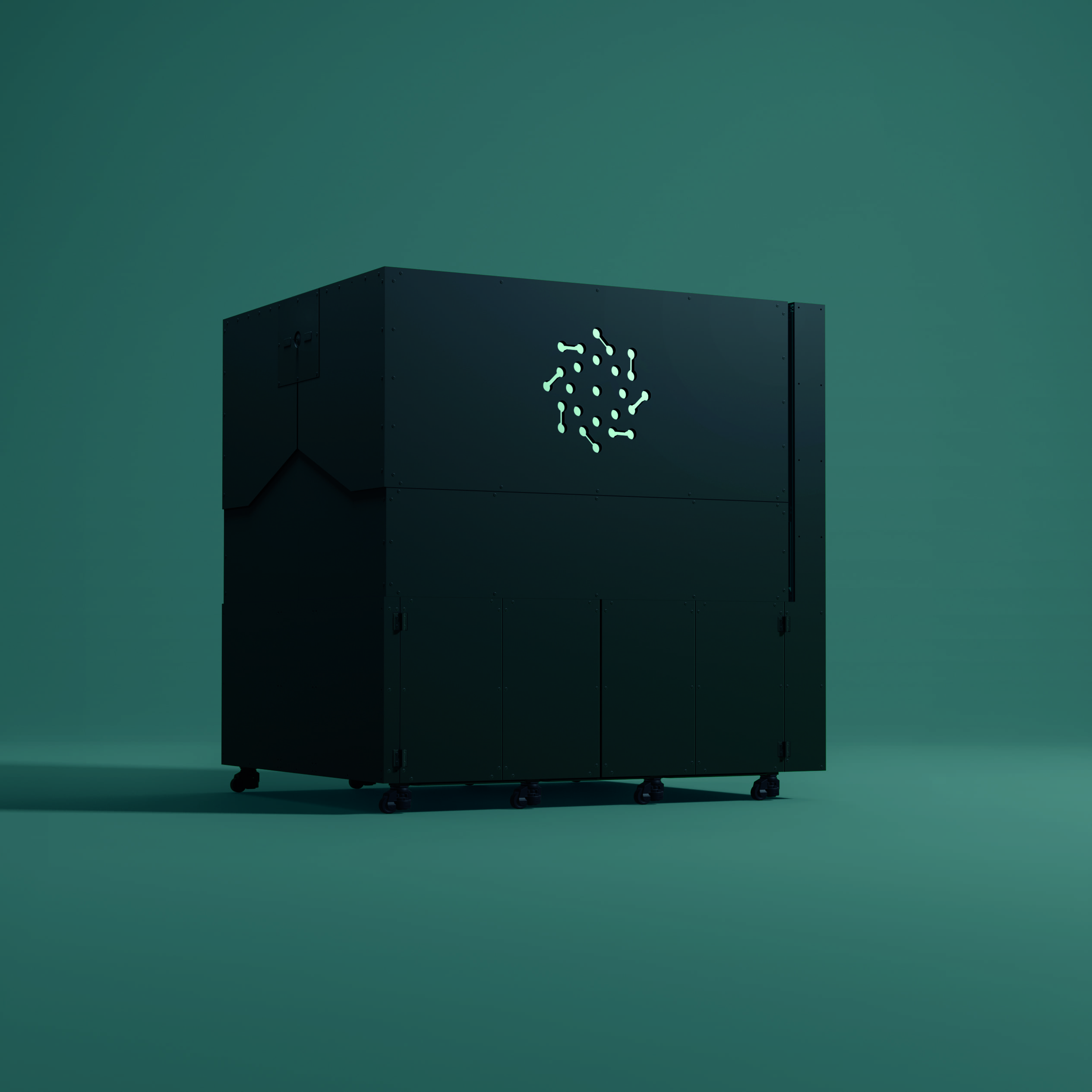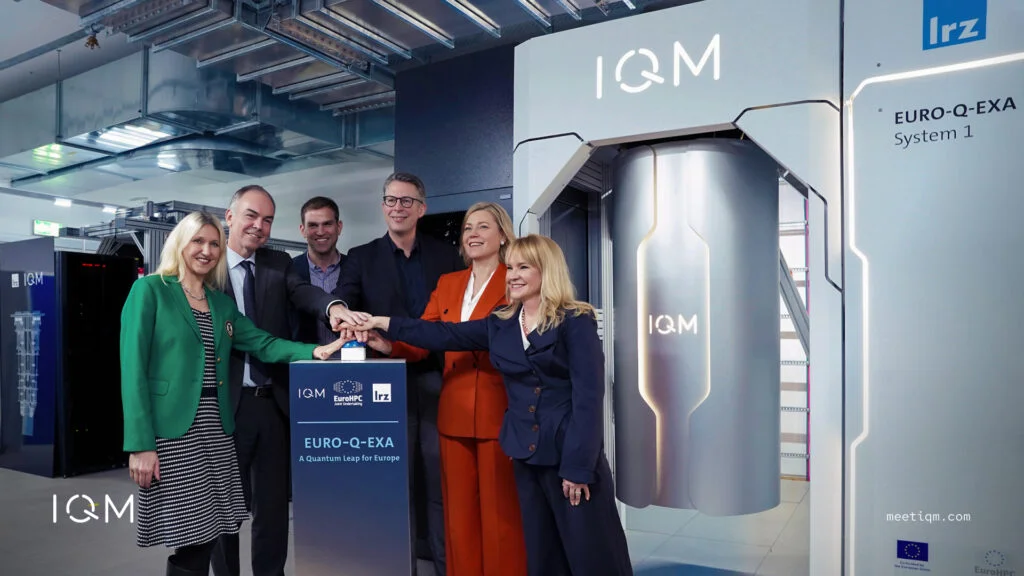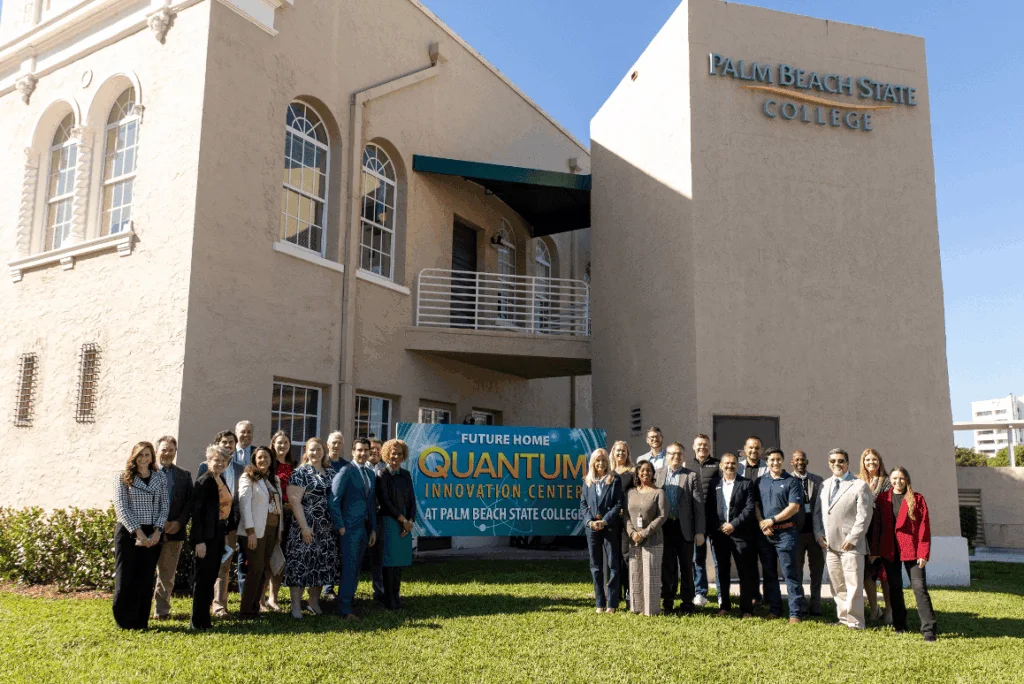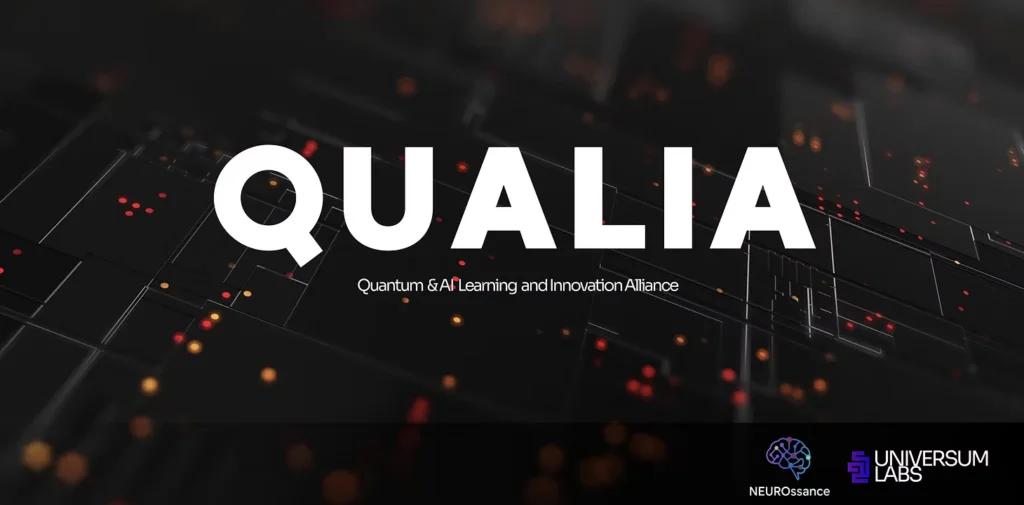Insider Brief
- Pasqal unveiled its 2025 roadmap focused on scaling quantum hardware deployments, achieving quantum advantage in real-world applications, and advancing toward fault-tolerant quantum computing.
- The company will deliver upgraded Orion QPUs across global HPC centers and aims to demonstrate quantum advantage with a 250-qubit processor optimized for logistics, materials science, and machine learning.
- Pasqal plans to reach 10,000 physical qubits and 200 logical qubits by 2030, with future systems leveraging photonic integrated circuits for improved fidelity, modularity, and scalability.
PRESS RELEASE — Pasqal, a global leader in neutral-atom quantum computing, today announced its 2025 product and technology roadmap – a comprehensive strategy structured around three core pillars: rapid deployment of quantum computers, demonstration of quantum advantage (QA) on industry-relevant problems, and an accelerated path toward digital fault-tolerant quantum computing (FTQC).
Pasqal’s mission is focused on delivering quantum value today while building a seamless bridge to the future. Its machines, operating in analog mode (computing with physical qubits), are already solving real-world problems and are engineered to evolve toward digital FTQC using the same upgradable, modular hardware platform. This future-proof design ensures customers benefit from meaningful quantum performance now, without compromising long-term scalability.
Deployment at Scale: Delivering Quantum Power to Users Today

In the past year, Pasqal has installed the first-ever neutral atom Quantum Processing Units (QPUs) in High-Performance Computing (HPC) Centers, with its Orion Beta machine (“Ruby”) acquired by Genci in France, and another computer delivered to Forschungszentrum Jülich in Germany. These milestones mark the beginning of a new era: enterprise-grade quantum processors integrated into real-world computing infrastructures.
Looking ahead, deployments are planned across Canada, the Middle East, and at the Italy-based European HPC center, CINECA.
These installations represent a critical step toward hybrid quantum-classical workflows – a model where classical computers, high-performance processors and QPUs work together to solve complex problems more efficiently. To facilitate the orchestration of these hybrid workflows, Pasqal is collaborating with both NVIDA and IBM to standardize QPU integration in HPC infrastructure and workflows.
Quantum Advantage: Bringing Tangible Performance to Industry
Pasqal is developing a 250-qubit QPU specifically optimized for achieving quantum advantage (where quantum outperforms classical computers in real-world tasks) on an industry-relevant problem, targeted for demonstration in the first part of 2026. With over 1,000 neutral atoms already successfully trapped in a quantum processor, the company is rapidly closing the gap toward usable, domain-specific quantum breakthroughs.
The QA initiative spans three strategic algorithm development areas:
- Optimization – Solving complex logistics and scheduling problems.
- Quantum Simulation – Modelling and discovering new materials for breakthroughs in energy and data storage.
- Machine Learning – Accelerating pattern recognition and predictive modelling.
Neutral-atom quantum computers are currently proving capable of unlocking short-term domain-specific advantage before the maturity of digital FTQC. In the next five years, Pasqal’s QPUs are expected to revolutionize fields like materials sciences or pharmaceutical drug discovery via quantum simulation and quantum-enhanced graph machine learning, among others.
Fault-Tolerant Quantum Computing: Building the Future, Today
Pasqal’s hardware technology roadmap is designed to move rapidly toward scalable, digital fault-tolerant quantum computing – reaching 1,000 physical qubits until the end of the year and moving towards 10,000 qubits by 2028.
Scaling quantum computers is dependent not only on increasing the number of physical qubits but making them more reliable by progressing towards logical qubits (these are made by combining many physical qubits in a way that makes them less prone to errors allowing computations to run longer and more accurately).
Pasqal’s technology roadmap targets a major leap in logical performance – starting from 2 logical qubits in 2025, moving to 20 by 2027, and reaching 100 high-fidelity logical qubits by 2029 and 200 in 2030. This increase will enable useful quantum computing at scale, solving meaningful real-world problems.
In terms of hardware products, by the end of 2025, the company will deliver Orion Gamma, the third version of its Orion QPU platform, featuring over 140 physical qubits. With each new generation (Vela in 2027, 200+ physical qubits, Centaurus in 2028, apt for early FTQC, and Lyra in 2029 delivering impactful FTQC), Pasqal’s processors are increasing not only in qubit count, but also in repetition rate, fidelity, and number of parallel gate operations (running tasks simultaneously).
Central to the evolution towards FTQC is Pasqal’s use of Photonic Integrated Circuits (PICs) in its next-generation machines. Following the strategic acquisition of Aeponyx, a Canadian pioneer in PICs, Pasqal will incorporate chip-scale photonics to dramatically improve qubit control fidelity, system stability, and hardware scalability. Increasing the precision of individual qubit manipulation with PICs will also play an essential role in the modularity of the hardware platform, scaling from hundreds to thousands of qubits.
Empowering the Ecosystem: Community, Open Software & Hybrid Integration
2025 has also marked the launch of the Pasqal Community, a new hub for open innovation. With upcoming releases to complete its open-source software stack and Pasqal’s cloud offering, Pasqal is boosting access to its hardware for developers, researchers and quantum enthusiasts – unlocking performance, supporting education, and fostering collaboration.
Pasqal’s Orion Alpha Machine is available through Microsoft Azure, Google Cloud Marketplace and its own user portal.
“Pasqal is delivering quantum value today, while building the foundation for tomorrow’s fault-tolerant systems,” said Loïc Henriet, CEO of Pasqal. “Our 2025 roadmap is designed to scale impact: expanding global deployments, demonstrating quantum advantage on real industry problems, and accelerating the development of digital quantum computing. We are taking a leading position in driving quantum adoption and leading the field into its next chapter.”
Pasqal will share further insights into its 2025 roadmap during an upcoming webinar, including detailed information on the key areas of development. The session will feature presentations from company leadership and technical experts. More information and registration details are available here.














